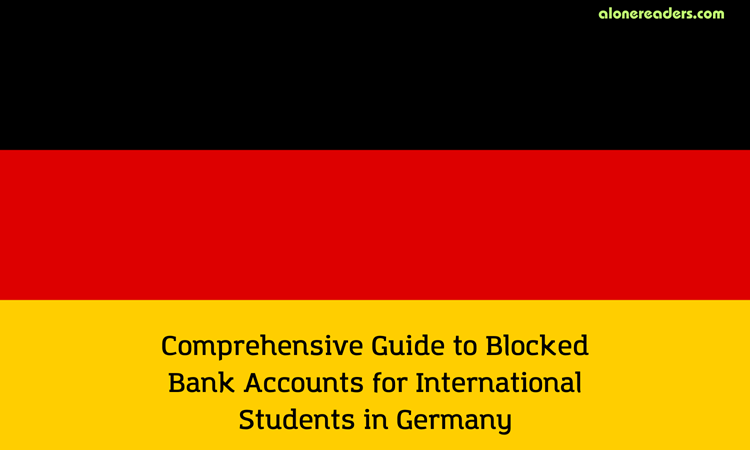
Germany has become a popular destination for international students due to its high-quality education system and rich cultural heritage. One crucial aspect of preparing for studies in Germany is understanding the financial requirements, particularly the need for a blocked bank account or “Sperrkonto.” This article provides a detailed guide on the blocked bank account in Germany, including its purpose, how to open one, the costs involved, and alternatives.
A blocked bank account, known in German as “Sperrkonto,” is a special type of bank account required by international students and job-seekers who wish to study or work in Germany. This account is used to prove that the individual has sufficient financial resources to cover their cost of living in Germany. The funds in this account are restricted, with students allowed to withdraw only a fixed amount monthly.
As of 2023, visa-seeking students must deposit €11,208 into their blocked bank account. This sum represents the estimated cost of living for one year, calculated at €934 per month. Some visas may require an additional 10% of funds.
Generally, non-EU and non-EEA citizens who need a visa or residence permit to study in Germany are required to have a blocked bank account. This requirement is not applicable to EU and EEA citizens.
It's important to research and choose a provider that best suits your needs.
Each provider has its service fees. For instance, in 2023:
These fees are subject to change, and additional surcharges may apply.
The German Federal Foreign Office estimates that €934 per month should cover typical living expenses in most German university cities. However, in cities with high living costs like Munich or Hamburg, this amount may be insufficient.
Blocked bank accounts offered by institutions regulated by the German Federal Financial Supervisory Authority (BaFin) are generally considered safe. Nonetheless, risks exist, as evidenced by past issues with some providers. It's crucial to conduct thorough research, check reviews, and consult with universities or fellow students before choosing a provider.
While blocked accounts are common, there are alternatives:
Always consult with the embassy for viable options.
Opening a blocked bank account is a critical step for international students planning to study in Germany. It requires careful consideration of the provider, understanding the associated costs, and assessing the sufficiency of funds. By following the outlined steps and considering alternatives, students can ensure a smooth financial transition to their new academic journey in Germany.